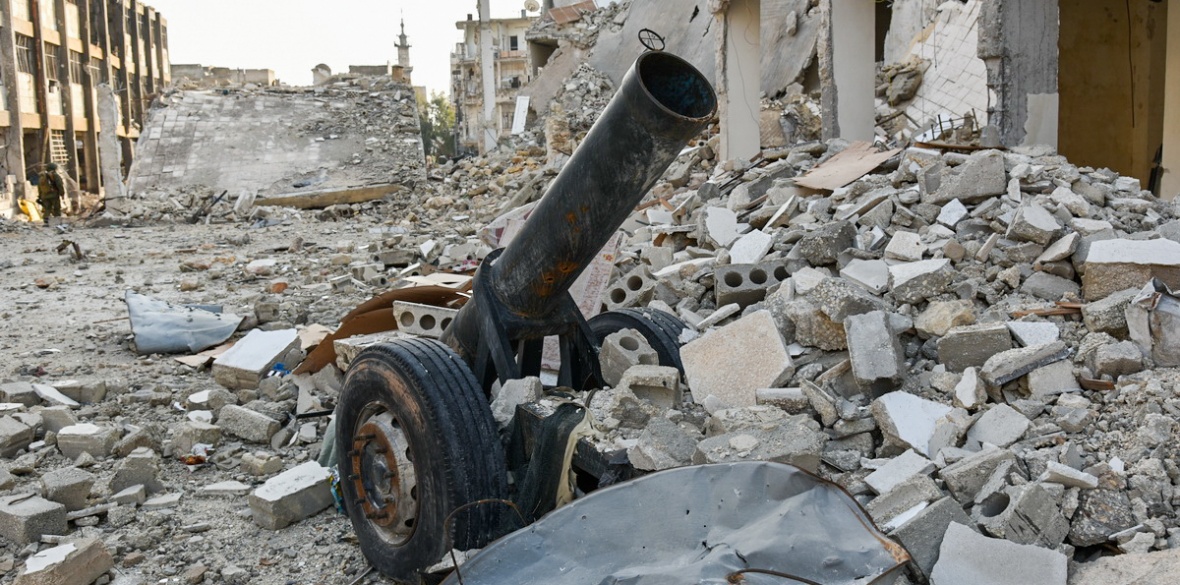This is the last article you can read this month
You can read more article this month
You can read more articles this month
Sorry your limit is up for this month
Reset on:
Please help support the Morning Star by subscribing here
A NEW chemical weapons team has been established which will investigate the site of nine alleged attacks in Syria with its reports set to identify those responsible for the use of banned munitions.
The Investigation and Identification Team (IIT) was formed last June by the member states of the Organisation for the Prohibition of Chemical Weapons (OPCW).
Previously the OPCW only stated whether the chemical attacks had occurred, not who the perpetrators were.
But the new 10-member team was created after a British proposal backed by the United States and European Union, but opposed by Russia, Iran, Syria and their allies.
The IIT “has identified a non-exhaustive provisional list of incidents on which it intends to focus its investigative work” between 2014 and 2018.
The Syrian city of Douma is one of the sites which will be investigated.
The OPCW has been accused of becoming politicised in recent years and failing to act as an impartial and independent body.
Earlier this year it was accused of deliberately “covering up” evidence under political pressure following a leaked report into the alleged chemical attack in Douma in 2018.
A dissenting report, conducted by leading engineers, cast serious doubt that chemical weapons had been dropped from above as stated in the report.
Ian Henderson, an experienced engineer who has worked with the OPCW for decades said in his report: “In summary, observations at the scene of the two locations, together with subsequent analysis, suggest that there is a higher probability that both cylinders were manually placed at those two locations rather than being dropped.”
This view, expressed by expert engineers who had conducted rigorous scientific research, was inexplicably omitted from the OPCW report.
The alleged chemical attack on Douma was swiftly blamed on Syrian President Bashar al-Assad, despite there being no independent investigations.
It led to missile strikes by France, Britain and the US which could have led to a serious escalation in the region.
Reporters on the ground corroborated witnesses who said the chemical attack was staged, with blame apportioned to pseudo-humanitarian group the White Helmets.
The team will also investigate alleged chemical attacks in Idlib, Hama and Aleppo.
Not included on the list is a chemical attack in Afrin, northern Syria which took place in February 2018.
Kurdish officials blamed the invading Turkish state which denied the accusation.
A White House official brushed off the claims and said the US thought it was “extremely unlikely” that Turkey had used chemical weapons against the Kurds.












